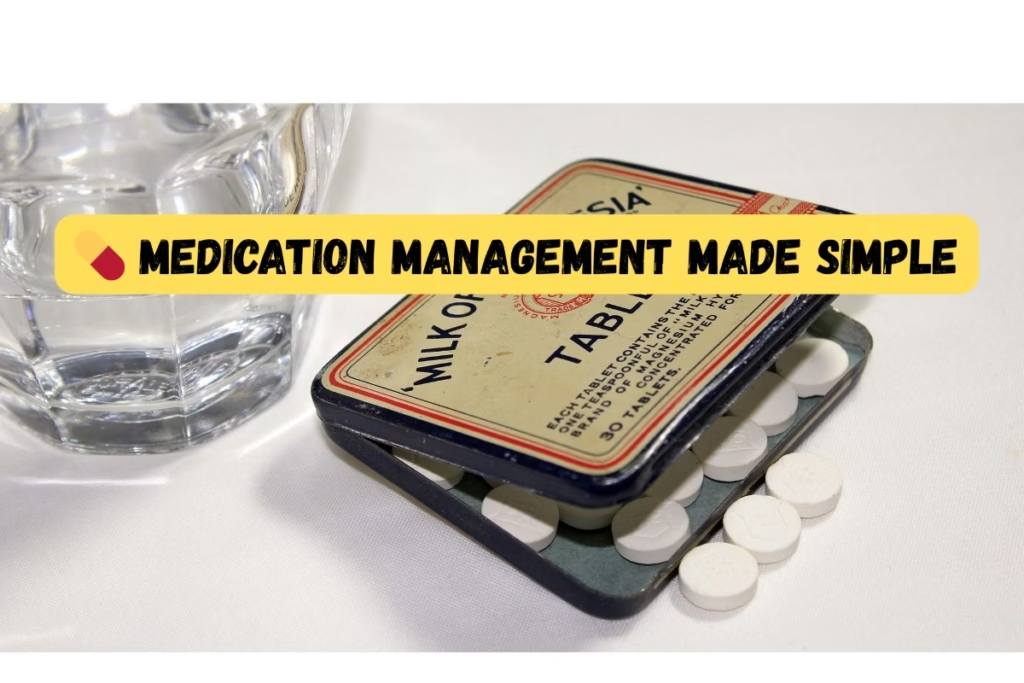Being the backbone of care, caregivers routinely face challenging decisions that necessitate quick thinking and responsiveness. At the crux of these moments is the often undervalued tool of intuition. Trusting instincts as a caregiver is not only a natural response but a vital component of providing effective and compassionate care. How can caregivers hone and trust their instincts to enhance their caregiving role?
1. The Role of Intuition in Caregiving
Navigating Uncertainty: Trusting Instincts as a Caregiver
Caregiving, by nature, is filled with moments where decisions need to be made quickly and without complete information. In such times, trusting instincts as a caregiver can be a guiding force. These instincts are not whims but are informed by experiences and the deep understanding of the care recipient’s needs and preferences.
For example, noticing subtle changes in behavior or mood can signal underlying issues before they become apparent through more overt symptoms. This ability to act swiftly can prevent complications and improve the overall wellbeing of both patient and caregiver.
The Connection Between Intuition and Empathy in Caregiving
At the heart of caregiving lies empathy – the capacity to understand and share the feelings of another. Intuition is closely linked to empathy, as it allows caregivers to sense what their loved ones or patients might need, even when it’s not verbally communicated. A touch, a look, or a slight change in routine can all convey critical information that intuition decodes.
Empathy fosters a strong connection, which in turn heightens intuitive abilities. When caregivers are deeply empathetic, they are more attuned to the nonverbal cues signifying pain, discomfort, or emotional distress in those they are attending to.
Recognizing the Signs: When to Trust Your Gut as a Caregiver
Understanding when to rely on your gut feeling is pivotal. Certain occurrences, such as a loved one suddenly becoming withdrawn or a gut feeling that something is ‘off’ even when clinical signs are normal, warrant attention. Trust your gut in these instances to take necessary actions, such as seeking further medical advice or providing additional comfort.
Oftentimes, this internal guidance becomes especially important in critical health situations where time is of the essence. Moments like these highlight the value of a caregiver’s intuition in managing the complexities of care.
In summary, intuition is an essential aspect of delivering personalized and compassionate care. Recognizing subtle signs and acting upon them can make a significant difference in the quality of life for those under your care. So, honor your caregiving instincts—they are an invaluable asset in the provision of attentive and loving support.
2. Developing Caregiver Intuition
Cultivating Awareness and Sensitivity to Needs
For caregivers, understanding the subtle non-verbal cues and changes in those they care for is crucial. Building a keen awareness and sensitivity to the needs of individuals is the first step in becoming an intuitive caregiver. This sensitivity allows for a nuanced understanding of what the person might require, even when they are unable to articulate it directly.
It starts with paying attention to the smallest of details, such as shifts in mood, variations in appetite, or changes in physical movement. Recognizing these signs can often preempt more significant issues, allowing for timely and more effective interventions. Caregivers can also fine-tune their observational skills by engaging in active listening and providing a comforting presence, creating an environment where the person feels understood and supported.
Intuition: The Silent Language of Caregiving
Intuition in caregiving often operates as a silent language, bridging the gap where words fall short. It’s about “listening” with the heart and responding to the unspoken needs of another. For caregivers, intuition might manifest as a gut feeling or an internal nudge guiding them towards the best course of action for the person under their care. This aspect of caregiving is not always easily defined or measured, but it is an invaluable tool in understanding and responding to a person’s needs on a deeper level.
To foster this intuition, caregivers should create a trusting relationship with those they look after. In doing so, they’ll be more attuned to the emotional and physical states of those in their care, offering comfort and help even when the person may not be fully aware of what they need themselves. trusting instincts as a caregiver becomes a harmonious blend of empathy, compassion, and the ability to act swiftly and competently.
Learning from Experience: The Growth of Instinctual Knowledge
Experience plays a pivotal role in sharpening a caregiver’s instincts. Each opportunity to care for someone offers invaluable lessons that contribute to a caregiver’s growing repository of instinctual knowledge. Over time, patterns begin to emerge, making it easier to predict and manage various situations.
Moreover, reflective practices such as journaling about caregiving experiences or discussing them with peers can enhance one’s understanding and knowledge. Learning from past encounters helps hone the ability to make quick and informed decisions, which is especially crucial in emergency situations or when managing chronic conditions.
Caregiving is a complex task that calls for a blend of knowledge, skill, and intuition. Cultivating intuition is about being present, empathetic, and responsive to the non-verbal signals that individuals often rely on to communicate. It requires a commitment to finely tuned observational skills and an openness to learning from each experience. Embracing this intuitive aspect of caregiving ultimately leads to more personalized and effective care for those who depend on it the most.
3. Intuition in Collaboration with Medical Knowledge
Balancing Instincts with Clinical Assessments
Healthcare necessitates a balance between empirical evidence and the human element, where caregivers are encouraged to harmonize their instinctual insights with established clinical assessments. This approach does not undermine the value of diagnostics; instead, it adds another layer of understanding to patient care. Medical tests and observations are fundamental, but integrating them with a caregiver’s intuitive concerns can lead to more personalized and timely interventions.
When Caregivers’ Intuition Signals a Deeper Issue
Occasionally, a caregiver may sense that something is amiss before it becomes apparent through clinical measurements. These instances are poignant reminders of the critical role intuition plays in detecting subtler signs of health changes or complications. Particularly for those dealing with chronic illnesses, a caregiver’s intuition might be the first indicator of a significant shift in a patient’s condition, prompting further investigation and potentially life-saving action.
Supporting Intuition with Continuous Learning and Training
While trusting instincts as a caregiver is essential, supporting these instincts with a foundation of continuous learning and professional development is equally important. Staying abreast of the latest research and participating in ongoing training equips caregivers with the knowledge needed to contextualize their gut feelings within the framework of current medical understanding. This commitment to education ensures that intuitive decisions are well-informed and enhances the quality of care provided.
For caregivers, marrying instinct with evidence-based practices is not just beneficial—it is imperative for delivering the highest standard of care. Keen observation skills coupled with advanced knowledge create a robust platform for responding to the nuanced needs of patients and their families effectively and compassionately.
4. Challenges in Trusting Caregiver Instincts
When taking on the mantle of a caregiver, it’s sometimes necessary to rely on gut feelings about the health and well-being of those under your care. trusting instincts as a caregiver plays a vital role, yet it comes with its challenges.
Overcoming Doubts and External Skepticism
One of the primary hurdles can be overcoming the doubts that naturally creep in. Is your intuition correct? Are the symptoms you’re noticing truly indicative of a problem? Asserting your concerns can be particularly difficult in the face of external skepticism. Family members, friends, and even healthcare professionals might question your observations, leading to second-guessing. To counter this, maintain a log of your observations to provide tangible evidence supporting your intuition.
Navigating the Complexities of Caregiver Intuition
Understanding and making decisions based on caregiver intuition is not always straightforward. It involves picking up on subtle cues that may not have a clear medical explanation but are vital pieces of information nonetheless. With emotional and physical nuances at play, distinguishing between what might be a hunch and what could be an evidence-based observation requires reflection and experience.
Discussing these feelings with other caregivers or joining a support group can aid in making sense of these complex gut feelings. Engaging with others in similar situations provides a platform to validate and contextualize your intuitive concerns.
The Limits of Intuition: Knowing When to Seek Help
Despite the importance of intuition in caregiving, there are limits to its reliability. Recognizing the boundary between intuition and expertise is essential. Caregivers need to acknowledge that professional medical advice is paramount when it comes to diagnoses or changes in treatment. Seeking help from healthcare professionals should not be seen as a failure in following one’s instincts but as an informed and responsible step in the caregiving process.
Ultimately, balancing intuition with professional guidance ensures the best possible outcomes for those in your care. It is crucial to realize that while your instincts are a powerful ally, they must be used in concert with medical knowledge and opportunities for professional collaboration.
5. Building Trust with Care Recipients Through Intuition
Instincts as the Foundation of Trust in Caregiver-Recipient Relationships
Caregivers often rely on their finely-tuned instincts when providing care, a practice that can play a pivotal role in building trust with those they look after. Trusting instincts as a caregiver allows for responding to non-verbal cues and subtle changes in behavior, often leading to more personalized and attentive care. When caregivers act on these instincts, care recipients are likely to feel more understood and safe, thereby establishing a foundation of trust that is essential for a positive caregiving relationship.
The Impact of Intuitive Acts on Care Recipient Well-being
Intuition in caregiving often extends beyond the basics of physical care and encompasses a deeper understanding of emotional and psychological needs. Actions taken from a place of intuition, such as providing comfort during times of stress without being asked, validate the feelings and concerns of the care recipient. This sense of attunement can significantly enhance the well-being of those receiving care, as their nuanced needs are met with compassion and empathy. Furthermore, when caregivers anticipate needs or take action without hesitation, it underscores their commitment to the person’s health and happiness, which can be deeply reassuring.
Forging Deeper Connections: The Intuitive Bond Between Caregiver and Recipient
An intuitive bond between caregiver and recipient is the hallmark of a strong care relationship. This connection is not just about understanding physical needs; it is also about tuning into emotions, creating a space where the care recipient feels comfortable expressing vulnerability. When a caregiver picks up on these non-verbal signals and acts accordingly, it can forge a deeper connection, allowing for a more holistic approach to care that nurtures both the body and spirit.
Such a bond can transform the caregiving experience from one of mere function to one that enriches the lives of both the caregiver and the care recipient. Through this intuitive understanding, caregiving becomes a journey of mutual growth and profound companionship, underscoring the irreplaceable value that intuition holds in fostering strong, positive caregiving relationships.
Insightful Consideration: Intuition is more than a mystical sense; it’s a rapid, unconscious process that can synthesize observations and experiences into actionable insights. Trusting instincts as a caregiver can sometimes mean the difference between timely intervention and missed signs, showcasing the undeniable impact of intuition in the art and science of caregiving.


